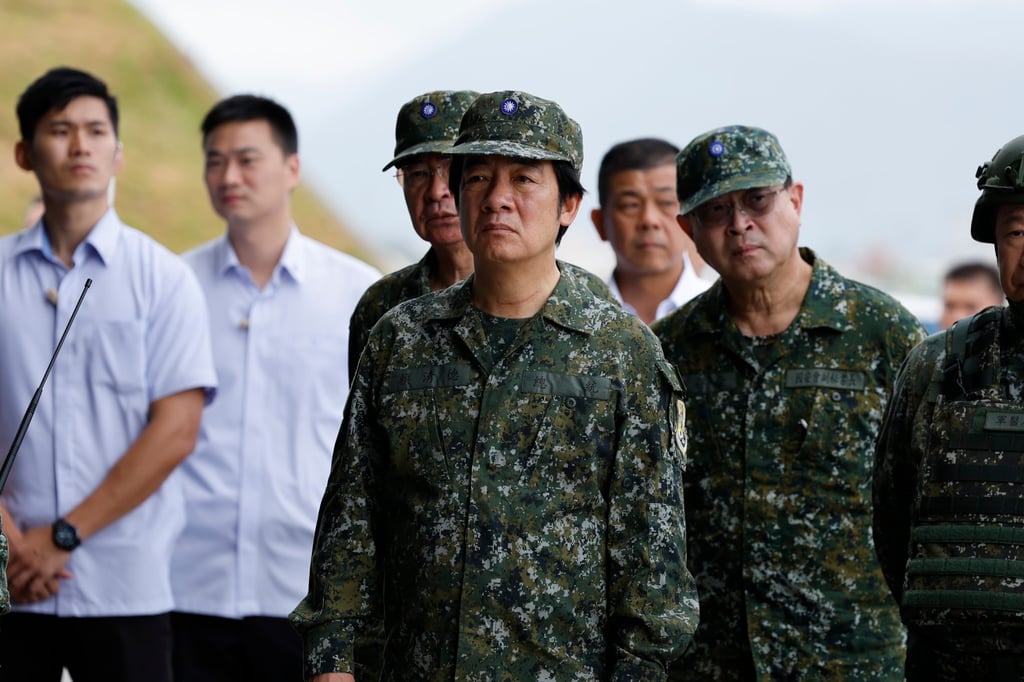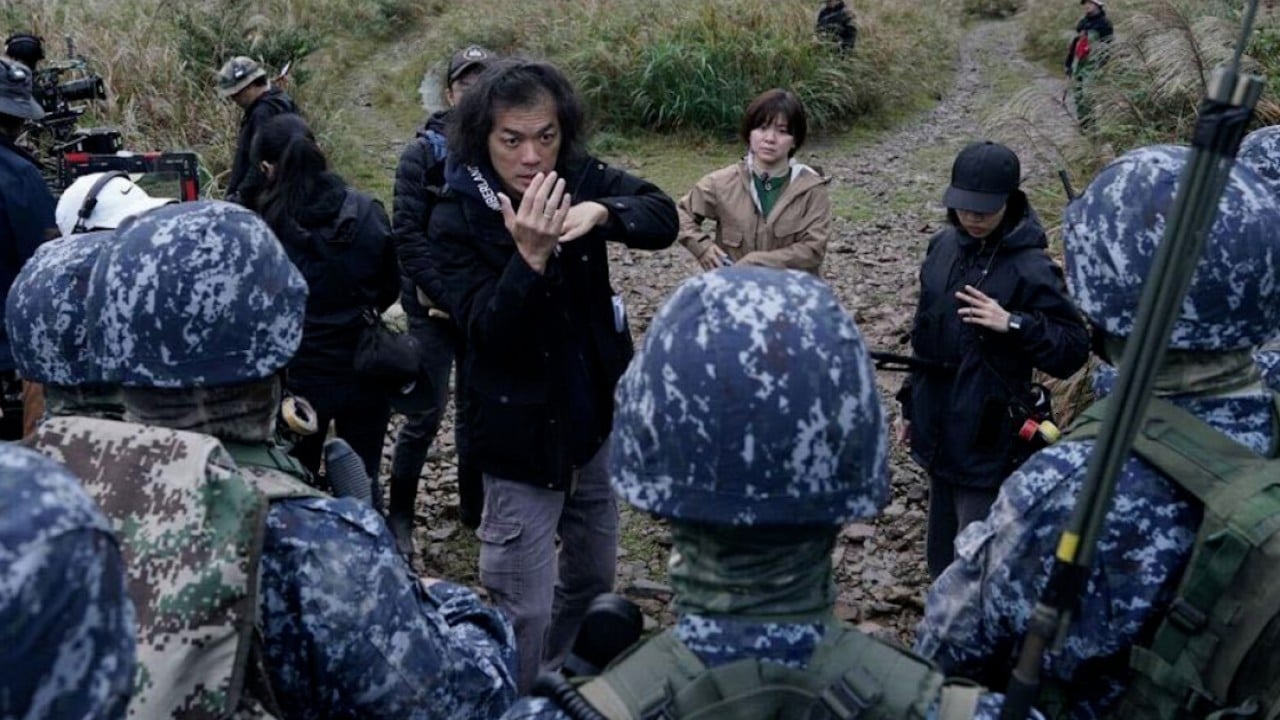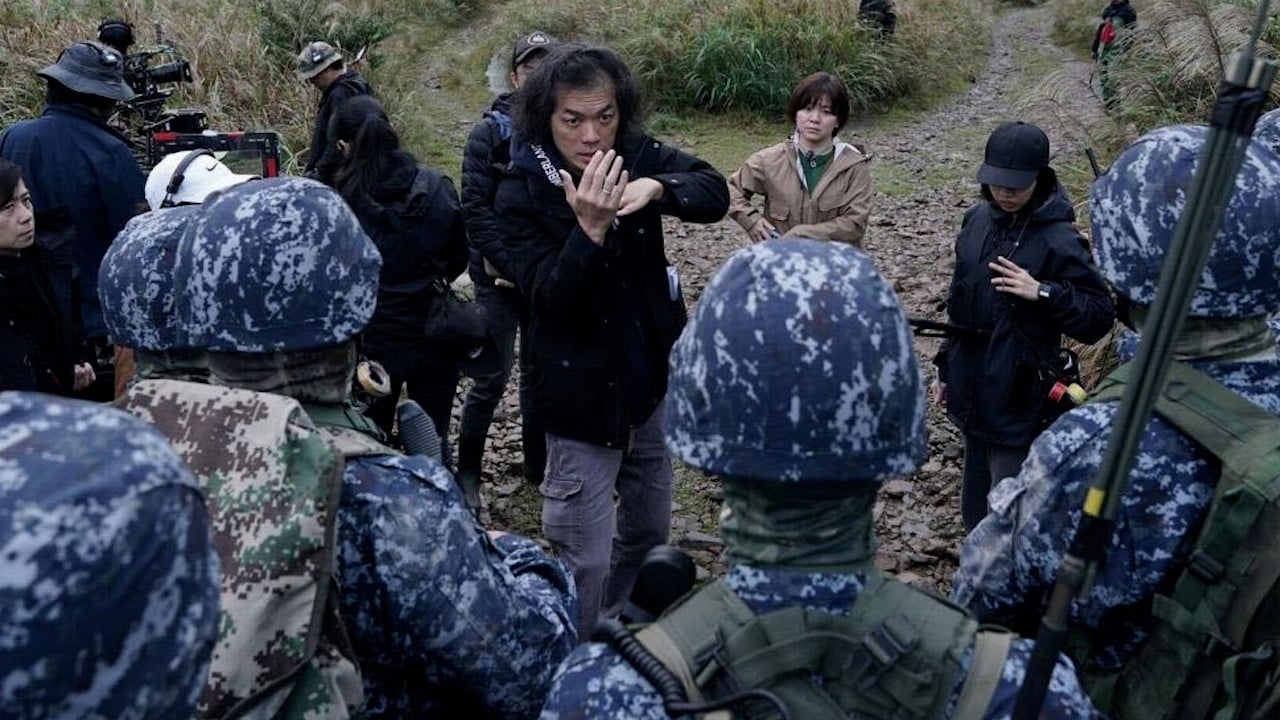Taiwanese leader William Lai Ching-te’s government is proposing to spend a record NT$647 billion (US$19.9 billion) on defence next year in response to growing threats from Beijing, but relatively little will be available for new weapons, analysts said.
The unprecedented defence spending, out of a total expenditure of NT$3.13 trillion, is almost double the NT$359 billion listed during the first year of Lai’s predecessor Tsai Ing-wen’s term in 2016.
Lai, who also heads the independence-leaning Democratic Progressive Party (DPP), has been keen to demonstrate his government’s commitment to improving Taiwan’s defences.
In a statement released by his office late on Tuesday, Lai said “we are determined to boost our self-defence and deepen cooperation with democratic partners to ensure peace and prosperity”.
Two days later, at a ceremony marking senior military promotions, Lai reiterated his determination to build a “strong and self-reliant” force against any potential aggression from the People’s Liberation Army.
“We are promoting defence reforms, reinstating one-year compulsory military service, and ensuring adequate weaponry through both self-reliance in defence and military procurement,” he said.
Lai told the assembled officers that the government’s efforts were validated by last month’s Han Kuang military exercises, the island’s largest annual war games which this year included live-fire drills closer to the Chinese mainland.
“Our goal is to build a formidable military force capable of ensuring our survival and development, as well as safeguarding the lives and property of our people,” he said.
Lai referred to “China’s continuous psychological and military intimidation against Taiwan”, including large-scale exercises around the island, and said Taiwanese forces must also strengthen their capabilities in modern warfare.
These include artificial intelligence, unmanned systems, decentralised command and control, and multi-service joint strike capability. “These areas have been clearly seen in the Russia-Ukraine war and the Israel-Palestine conflict,” he said.

Since taking office on May 20, Lai – labelled by Beijing as a “separatist” who would bring war to the Taiwan Strait – has been on a listening tour of the island’s army, navy, and air force units.
The proposed budget – which still needs final approval from the island’s cabinet and review by the legislature – puts defence spending in 2025 at about 6.6 per cent higher than this year’s NT$606.8 billion.
The increase will bring the island’s defence budget to around 2.65 per cent of GDP, up from this year’s 2.5 per cent but still short of the 3 per cent repeatedly suggested by the US, Taiwan’s main arms supplier.
Former US president Donald Trump, now the Republican presidential nominee, said in June that it was “stupid” for the US to offer protection to Taiwan for free, insisting that Taipei must pay more if it wants Washington’s help to defend the island.
In the same interview, Trump expressed scepticism about the feasibility of defending Taiwan from such a distance.
Beijing regards the island as part of its territory that will eventually be brought under mainland control, by force if necessary.
Like most countries, the US does not recognise Taiwan as an independent state. However, Washington opposes any unilateral change to the status quo and is committed to supplying weapons for the island’s defence.
The mainland’s defence budget for 2024 stands at 1.67 trillion yuan (US$232 billion), up 7.2 per cent from last year and at least 16.5 times larger than Taiwan’s.
Military analyst Zivon Wang, from the Chinese Council of Advanced Policy Studies think tank in Taipei, noted that the proposed record spending reflected Lai’s determination to improve the island’s defences.
Wang said it would be “challenging” for the government to reach the 3 per cent target all at once “as we have other budget allocation arrangements to take care of”, although he expected the US would continue to pressure Taiwan to achieve it.
“But more importantly, we need to consider how our budget can be effectively used to reflect the real situation,” he said.
Ying-yu Lin, a professor of international relations and strategic studies at Tamkang University in New Taipei, also said Taiwan must make the best use of its spending according to its actual needs, despite US pressure.
“After all, sharply increasing our defence spending will crowd out other budget allocations,” he said.
Lin pointed out that a major reason for this year’s record budget proposal was an increase in the military’s personnel expenses. This has included an extension of conscription from four months to one year, in line with another US request.
“From the beginning of this year, compulsory military service has been extended to one year. Additionally, active and reserve soldiers will need to be trained to use new military tools or armaments. All this requires more spending,” he said.
The government has announced a 3 per cent pay rise for personnel from the military, public offices, and schools, effective January next year, a move that would further increase military spending in 2025, Lin added.
According to Wang, another factor behind the new high in spending is the defence ministry’s need to pay for its military investments, including procurements from within Taiwan and the US.
“The peak payment periods for arms purchases and other investments will occur between this year and next year. Once these … are over, by 2026 and 2027, there will be more financial flexibility to continue related or new military investments,” he said.
The payments cover orders for new-generation weapons to be delivered between 2026 and 2028. These include 108 M1A2T tanks, 66 F-16V Block 70 fighter jets, 29 HIMARS rocket systems, and 100 Harpoon land-based missile systems bought from the US.
According to the defence ministry, the payments also relate to various domestically produced and foreign-bought drones. Additionally, part of the budget will go towards the island’s domestically built submarine.



